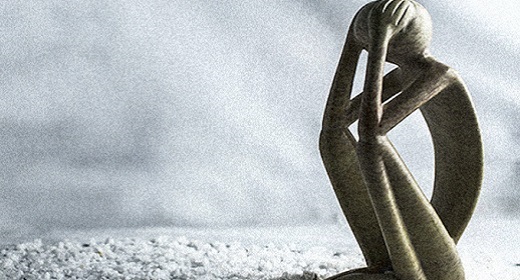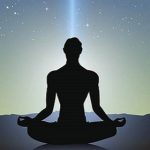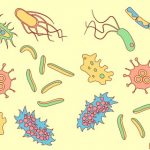Do you think getting enough good sleep is negotiable?
Just stop right there! Your sleep is not negotiable. You must make deposits into your sleep bank every day, how much deposit you make depends on individual body needs but hey! You still have to make those deposits!
Depriving yourself of sleep will just keep your sleep debts accumulated which you must pay back to live a healthy and stable life.
Sleep deprivation is real, and it occurs when one lacks enough sleep. If you ask me I will say your sleep is crucial to your existence and long life. Are you wondering why I am making a big deal out of ‘sleep’? Well, read on!
What Are The Stages Of sleep?
Stage 1: At this stage, you are having what is called light sleep. You can be easily awakened as you slowly drift in sleep and out. Have you ever felt a sensation of falling while sleeping? This is because you are still in this stage of sleep. You witness slow eye movements and slow muscle activity.
Stage 2: The brain waves get slower here, and your eye movement stops. Your body is getting ready for deep sleep! Heart rate slows, body temperature drops too.
Stage 3: This is the deep sleep stage. At this stage, sleepwalks, bedwetting, night terrors, etc., can occur. These are called parasomnias, and they happen when a transition is happening between non-REM and REM sleep.
Stage 4: Still on deep sleep, there is an almost exclusive production of delta waves by the brain at this stage.
These four stages are the non-REM stage. The fifth stage is the:
REM stage: Rapid Eye Movement stage is where the brain waves are mimicking activities in the waking state. The eyes move from side to side rapidly, though they are shut.
What Is Sleep Deprivation?
Sleep deprivation is the inability to get sufficient sleep. It could be acute or chronic. People with the inability to get enough sleep sometimes witness clumsiness, fatigue, loss of weight or even weight gain. Sleep deprivation can have effects on the brain and cognitive function.
However, there are some situations whereby this condition enhances the mood, increases energy and keeps the person alert. Studies have shown that there are different effects of acute total sleep deprivation and chronic partial sleep restriction.
Total sleep deprivation for the long term is yet to be studied in humans; however, when examined in lab animals, the result was death.
How Much Sleep Is Enough?

Sleep is essential to human survival. One-third of our lives are spent sleeping. How much sleep is needed depends on age. Also, your lifestyle and state of health will determine how much sleep you need.
Although, a specific number of hours cannot be fixed for all as the required sleeping hours because human needs will vary according to health or lifestyle, what can be given is a minimum and maximum hours range of sleep that is needed for ages.
0-3 months old (newborn): Babies sleep a lot since they are growing. They need to get around 14 to 17 hours of sleep daily.
4-11 months (infants): Infants also need as much sleep like 12-15 hours.
1-2 years (toddlers): They are also growing hence they need to have around 11 to 14 hours of sleep.
3-5 years (preschool stage): Children of this age need to get about 10 to 13 hours of sleep.
6-13 years (school stage): For this age, arriving at around 9 to 11 hours of sleep is essential for them.
14-17 years (teenagers): An average of 8 to 10 hours of sleep is needed.
18-25 years (younger adults): 7 to 9 hours of sleep is what they need. Same applies to adults between the ages of 26-64.
65 years and above: Similar to above, they need 7 to 8 hours of sleep daily.
Still, your body needs might differ. You might get 7 hours of sleep and still feel inactive and tired as though you had just an hour of sleep. That is why individual nature, lifestyle, and health sometimes determine the amount of sleep you need.
Pay attention to yourself. Do you feel productive after seven hours of sleep? Do you feel happy and healthy only after 9 hours of sleep? These things can be checked by you to determine the number of hours of sleep you need to daily.
The caffeine stage: At this stage, you’re practically useless without caffeine. You can’t work or achieve anything without this. You need caffeine to get going.
The laughing stage: You begin to laugh about everything, even the stupidest things. You are so tired that everything has become funny. You just want to save your life with the laughter.
The anger stage: The smallest things set you on fire. You get crazily angry over trivial matters.
The crying stage: Tears just begin to flow even in the middle of a normal conversation. People will start to ask if you are okay. Also, you will wonder where the tears are coming from since you are not unhappy about anything.
The absolute silence stage: After the anger and the emotional outpour stage, there’s nothing more to say as you cannot find a single word to utter.
The sleep anywhere stage: You begin to fall asleep even in the strangest places; in class, while driving, any place at that.
Lack Of Sleep Causes

Lack of sleep is caused when you do not get a healthy amount of sleep daily. Some do not have the required sleep their body needs because to them it is a waste of time and then they intentionally deprive themselves of sleep and this is what causes lack of sleep for them.
The period to be used for sleep is directed for other purposes such as money making, entertainment, or academic goals. Teenagers and young adults mostly fall into the category of those who intentional deny themselves of sleep.
On the other hand, another category of people does not get enough sleep unintentionally. Perhaps, their way of life denies them good sleep. Some jobs are that demanding, some engage in shift work and for some, family obligations will not allow them to have a good rest.
Other sleep deprivation causes are consistent lateness in going to bed, constant nightmare and sometimes frequently waking up early even when you have slept late. All these can cause an accumulation of sleep debt in you.
Furthermore, medical problems are also a cause of sleep deprivation. Medical issues such as hormonal imbalances, obstructive sleep apnea, depression and other chronic illnesses…
Other causes of lack of sleep are:
Excessive stress, effects of some stimulants or certain medications, alcohol consumption, blood sugar fluctuations due to poor diets, excessive eating around bedtime or pregnancy…
Sleep Disorders
Sleep disorder, also known as somnipathy is a disorder in the human or animal sleeping patterns. It is a medical disorder that could be serious to the point of becoming an interference with your mental, physical, emotional and social functionality.
Sleeping disorder includes sleep apnea, snoring, sleep deprivation, insomnia and restless legs syndrome.
What Is Sleep Apnea?
Sleep apnea symptoms are breathing interruption that occurs while sleeping. When sleep apnea is left untreated, your breathing repeatedly stops, up to hundreds of time, while sleeping. What this signifies is that the brain and the body generally may not get adequate oxygen as required. Sleep apnea affects anyone at any age.
Sleep apnea is in two forms:
Obstructive sleep apnea (OSA): This is the commonest of the two types we have. It occurs due to the airway blockage, often when soft tissue behind the throat collapses while sleeping.
Central sleep apnea: What happens here is a signal failure from the brain to the muscle to breath because of respiratory control center instability.
Although sleep apnea can affect anyone at any age, be it children or adults, but the following are at risk of getting it: Male gender, those overweight, people with large neck sizes, those over 40, large tongued persons, people having large tonsils, having small jawbones, existing history of sleep apnea in the family, allergies or sinus problems which lead to nasal obstruction, Gastroesophageal reflux, or GERD.
Untreated sleep apnea can lead to other serious health problems such as: Worsening of ADHD, Diabetes, High blood pressure, Depression, Heart failure, Stroke, heart attacks, irregular heartbeats, and Headaches.
Sleep Deprivation Symptoms

Whether it is long-term sleep deprivation or short term, there are some signs of sleep deprivation you may see. It could range from just sleepiness to more significant problems like hallucination, pains and even memory problems.
The severity of your sleep deprivation will determine the severity of the symptoms. The longer you stayed awake, the more your symptoms. For someone who just had a one-time limited sleep, the symptoms will be different from someone who frequently had an inadequate sleep. The later will suffer more symptoms because of the accumulated debt of no sleep.
Also, the circadian clock will determine how intense or not your symptoms will be.
Some effects of sleep deprivation are excessive daytime sleepiness, inactiveness during the daytime, and other long-term health conditions like obesity.
Physical Symptoms Of Sleep Deprivation
One primary physical symptom attached to sleep deprivation is body pain complaints. The feeling of discomfort and malaise could also occur. The sleep-deprived person will merely feel in well as a result of this. Chronic body aches and pains, gastrointestinal and stomach upset symptoms like diarrhea are symptoms that may occur due to lack of sleep.
However, these symptoms may not be linked to lack of sleep since sleep deprivation is sometimes unrecognized.
Body weakness and inactiveness are some physical effects of sleep deprivation.
Symptoms Of Sleep Deprivation In Adults
Sleepiness: The commonest of the signs attached to sleep deprivation. You will mostly find yourself being sleepy when you don’t get enough sleep. The frequent feeling of sleepiness and drowsiness is part of the most seen signs when adults are deprived of sleep. This could also bring fatigue to you. With this symptom, you can fall asleep quicker (short sleep latency).
However, sleepiness could be therapeutic in the case of intended sleep restriction. For instance, those suffering from insomnia may need the sleepiness.
Mood Changes: Short temper while you didn’t get enough sleep is a symptom of sleep deprivation. Not getting enough sleep can leave you easily irritable. Just as a good night sleep puts you in a great mood during the day, so can lack of sleep puts you in a bad mood. Mood changes can develop into more serious issues like depression and anxiety.
Sleep is a very vital part of our mental health hence could have a link with psychiatric conditions.
Loss of concentration: Only a well-rested brain can allow you pay full attention to your surroundings. Sleep deprivation means an impaired ability to concentrate. It could be as dangerous as you not realizing your level of impairment when your sleep deprivation has become chronic.
This reduced alertness can cause accidents and errors and can have well marred your performance in your daily activities. This symptom can be likened to what happens with an alcohol intoxicated person.
Reduced thinking ability and memory: Our abilities to think and process memories could be impaired by lack of sleep. As we know, sleep is essential for these two things to be effective. Hence, lack of sleep can undermine this, and the consequences are reduced functionality, inability to plan and organize, as well as a reduced sense of judgment.
Inability to concentrate and pay attention is the most prevalent symptom of sleep deprivation. Hence, loss of memory is inevitable since the sleep-deprived person was not concentrating or registering the happenings in the first instance. How will such a person remember when your attention was not paid in the first place?
With sleep, we can solidify and consolidate our daily events; therefore without sleep, problems may arise.
When you are not able to think correctly or unable to have your memory processed, you will lack proper planning, be disorganized, take more risks, decreased judgment, and you may also prioritize on the wrong things.
Psychiatric consequences: If you are deprived of sleep, the symptoms could even be as severe as hallucinations, disorientation, and paranoia. Surprisingly, these symptoms are not hard to find; they’re familiar. Disorientation occurs when you begin to get confused and make mistakes or lose track of time, date, year or even places, i.e., not knowing where you are.
On an extreme level, it could get serious to the point of not even knowing who you are anymore.
Hallucination is common too. Sleep-deprived people may even begin to see things that are not there. Paranoia is also a symptom of sleep deprivation. You may start to feel you are being persecuted by some external entity when there is nothing like that happening. When people having these symptoms get enough the sleep they lack, all these psychiatric conditions may just go away on their own.
Symptoms Of Sleep Deprivation In Children

Moodiness and depression: Sleep-deprived teenagers have difficulty managing their emotions. The study carried in 2010 and published by medical journal sleep revealed that teens who sleep after midnight tend to have negative mood swings than those who sleep earlier. 24% also have the likeliness to suffer from anxiety and depression while 20% have the likelihood of considering harming themselves.
In summary, a sleep-deprived child tends to be easily frustrated, lack patience, always demanding, and has more negative mood swings. Such a child could cause conflicts at home.
Hyperactivity: A sleep-deprived child may show symptoms of attention deficit hyperactivity disorder (ADHD). They could be hyperactive, excitable, become disagreeable, aggressive and tantrums.
Emotionally volatile: Studies have also shown that children who lose some sleep at night could be more restless, emotionally unstable, frustrated and quickly lose their tempers.
Clumsiness and impulsivity: Teenagers (since their prefrontal cortex is not fully developed) especially boys take risks without thinking through. Sleep deprivation pronounces this attitude in them hence they expose themselves to dangerous behaviors.
Sleep Deprivation Effects

1. Sleep Deprivation Effects On The Brain
The amygdala in the brain controls emotions in humans, and when you are deprived of sleep a reaction occurs and you get your amygdala more efficient by 60 percent than usual. The connection between the medial prefrontal cortex that serves as a regulator of amygdala function is also disrupted by sleep deprivation.
The hippocampus in the brain is also prone to be affected. This part of the brain is very crucial to the successful storage of new memories.
2. Central Nervous System
Otherwise known as your body’s information highway, your central nervous system needs sleep for it to keep functioning properly. However, sleep deprivation can impede on how your body sends information usually.
While we sleep, pathways are created by our brain’s nerve cells (neurons) which helps us remember new information we have acquired. When we are deprived of sleep, our brain is exhausted. Hence, it doesn’t execute its duties correctly. Concentration becomes hard and so does learning new things become a difficulty.
Another lack of sleep side effects is more difficult to concentrate or learn new things when you lack sleep. Coordination skills are reduced therefore a sleep-deprived person is prone to have accidents.
Impatience, mood swings and some other mental and emotional effects may occur. Your creativity and decision-making processes may be disturbed as well. On a more serious note or longer term, hallucinations and other psychological issues like depression, paranoia, impulsive behavior and even suicidal thoughts may occur.
3. Immune System
Our immune system produces substances like cytokines. These substances serve as protection and infection-fighters for us. It is with these substances that our immune system can help to fight against viruses and bacterias when they invade our bodies. Cytokines also help us sleep, and in that process, our immune system gets more energy to safeguard us from illnesses.
Definitely with these said, not having an adequate sleep will damage your immune system from protecting you from external invaders. A weakened immune system could take you longer than usual to recover from illness. In all, when you are sleep-deprived, you are at risk of falling ill easily.
If your sleep deprivation goes on for a long time, you are at risk of getting chronic illnesses like heart diseases and diabetes.
4. Respiratory System
Obstructive Sleep Apnea (OSA) is a sleep deprivation condition related to the respiratory system. It does not allow those with the state get quality sleep. Hence they are more vulnerable to respiratory infections such as the regular cold and flu. Lack of sleep can worsen existing respiratory diseases like chronic lung illness.
5. Digestive System
Leptin and ghrelin are two hormones that control the feeling of hunger or fullness. Sleep affects these two hormones. Leptin is the hormone that signifies the brain when you have had enough food. When there’s sleep deprivation, the brain raises ghrelin and reduces leptin; ghrelin stimulates the appetite.
This explains the urge for late night snacking in people, and some even eat heavily at late night. Weight gain and obesity can occur due to this.
Sleep deprivation also inspires the body to release more insulin after a meal. Insulin controls your blood sugar level. With increased insulin, you are at risk of getting accumulated fats and type 2 diabetes.
6. Cardiovascular System
Sleep plays a very vital role in keeping the heart and blood vessels healthy. It is also essential For the blood pressure, blood sugar, inflammation levels and for the ability of the body to repair and heal blood vessels and the heart as well. People with deprived sleep are at the risk of having cardiovascular disease.
7. Endocrine System
Staying awake all through the night can affect hormone production because the production of hormone depends on your sleep. Testosterone production, for instance, needs a minimum of consecutive 3 hours of sleep. When deprived of sleep, hormone production growth is affected.
8. Effects Of Sleep Loss On Children
Lack of sleep in children might cause absenteeism from school, inadequate attention, depression, irritability and crankiness, poor social Interactions, increased risk-taking and worse grades. They could also develop poor decision making and decreased memory.
Sleep Deprivation Treatment

Cognitive Behavioral Treatments
CBT is a therapy put in place for those suffering from insomnia. This treatment helps you get rid of the bad sleep habits that keep you awake while also helping you develop new good ones.
Sleep therapists sometimes recommend some of these CBT-I techniques:
Stimulus Control Therapy
With this therapy. Factors that make your mind resist sleep are eliminated. Consistent time to rest and wake could be required for you to set, and your bed will be strictly for sleep and sex.
Sleep Restriction
Poor sleep can occur from the habit of always staying in bed even when awake. So, this method will help you reduce the time spent in bed so you could get more tired at night.
Sleep Hygiene
This involves changing some lifestyle habits that could be a cause of your lack of sleep. Excess caffeine, alcohol, smoking, lack of exercise are part of those habits.
Improvement Of Your Sleep Environment
Keeping your bedroom calm, dark and quiet, removing the television from the bedroom and hiding the clock from where visible. These can help you get better sleep.
Relaxation Training
Muscle relaxation, meditation, and more are ways to help you feel relaxed so you could get better sleep.
Remaining Passively Awake
This method is also called paradoxical intention. Paradoxically, the thought and worry that you cannot sleep are enough to keep you awake. So not worrying could help you sleep better.
Biofeedback
Biological signs of your muscle tension and heart rate are observed while it shows you ways they can be adjusted.
Medications
Doctors sometimes prescribe sleeping pills for those who lack sleep. However, this treatment is temporary. There is need to obtain more rest still.
Natural Treatments for Sleep Deprivation
Sleep More
Sleep deprivation occurs when you don’t get enough quality sleep, so the easiest and the best among sleep deprivation cures is just to get more sleep. Avoid those things that keep you up at night. Study in the day and sleep at night if that has been depriving you of sleep. Take naps during the day too while you increase the duration of sleep you get at night. Just get enough sleep.
Be Active
If your sleep deprivation is minimal, staying active during the day might help you stay more alert. It could tire you out, so you sleep more at night. This might not work for those with chronic sleep deprivation.
Eliminate Caffeine And Alcohol
Maybe to stay active during the day you may take them, but these are capable of denying you sleep when taken late at night. They also can disrupt your sleep by waking you up at night to frequently urinate. Though you can try chamomile tea, which is known to help people with sleeping problems.
Diet
Try to eat foods that will not weigh you down during the day. Foods high in carbohydrates as midday meals can make you tired and sleepy. So for your lunch try meals balanced with carbs and proteins.
Daytime exercise
Exercising your body in the morning before going out is an excellent way to ward off tiredness and sleepiness. If you can stay active during the day, perhaps sleeping at night won’t be a problem.
Paying off the sleep debt
Paying off your debts of sleep is very sacrosanct for you to stay healthy. It does not happen suddenly or overnight; it is a gradual thing.
Here are some tips:
- Increase your night sleep hours by some hours.
- Create a schedule. Make sleep a routine. Get your sleep daily and ensure you get the hours you have set.
- Try to get about 10 or more hours of sleep every night in the beginning. It will normalize as time goes on.
- As you progress, change your sleep cycle. Go to bed when you are sleepy and wake up naturally without the use of alarms.
- Your amount of sleep debts will determine how quickly your body adjusts. Don’t be in haste to see immediate changes.
Be determined to get better.
Prevention
- Stay active during the day and avoid naps. Sometimes, naps deny you the ability to sleep at night.
- Regular exercises even before bedtime will help you sleep well.
- Avoid alcohol and caffeine at late nights.
- Avoid eating heavily at night and don’t eat late so you can sleep well.
- Make your bedroom comfortable for you. Quiet and dark does the trick. Maintain a proper room temperature too. You can use earplugs to get rid of sounds.
- Your bed should be strictly for sleep and sex.
Conclusion
Sleep deprivation could be more severe than you think it is. The need to get the required daily sleep has been emphasized in this article, so; it is essential to go for it. If you already are sleep-deprived there is nothing to worry about; the important thing now is to pay off that sleep debt. Overlooking your lack of sleep is dangerous as it could lead to more severe consequences such as death.
Getting a healthy sleep is essential for all and sundry; not only the sleep-deprived. So, make your sleep a daily routine today and see how fit and agile you will be. Nothing beats health, not even money!

















































